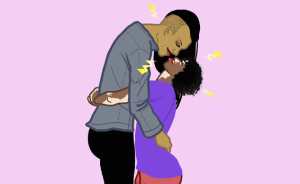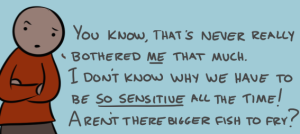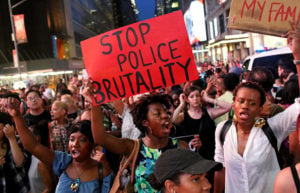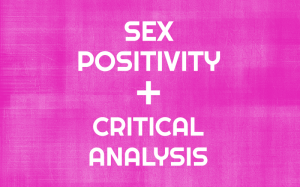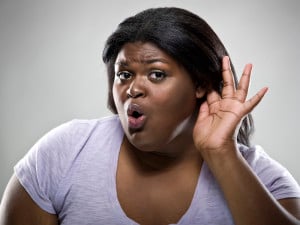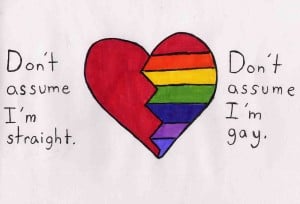Today I wanted to talk about how to be a good ally.
An ally is a person who supports a group of marginalized or oppressed people, but does not belong to said group: a white person supporting black rights, a straight person supporting LGBTQ+ rights. If you are a person who sympathizes with some of these clauses, but you’re like, “I don’t know how to help, I’m not oppressed,” I’m going to help you out. It’s going to be great.
1. Check Your Privilege
There are lots of different types of privilege. I personally have white, straight, able-bodied, cis privileges, and maybe some others that I can’t even think of because I’m so privileged, it doesn’t affect me. That’s not meant to—that sounds weird, doesn’t it? I’m so privileged.
Privileged doesn’t mean that you’ve not had your fair share of hardships and struggles in life. It simply means that there are some things that you will never have to think about just because of the way that you are.
Understanding your own privileges can help you empathize with marginalized or oppressed groups, and we love empathy. Empathy is great. Empathy is so in right now.
Stop trying to make empathy happen, Gretchen.
Yes, Gretchen, make empathy happen. What is happening?
2. Listen
AKA, shut up. Maybe I think I’m being a good ally, but I’m saying things like, “black people think blah, blah, blah, blah, blah… and trans people feel like blah, blah, blah…” How do I know?
I need to stop talking and listen to the people who belong to these groups about how they think and feel about their experiences. And instead of speaking for them, you can use your position of privilege to share their stories and amplify their voices.
3. Educate
Do your research. Your friends aren’t going to want to keep explaining to you how and why that they’re oppressed. Show your commitment to the cause by doing your own research. Read some books, read some articles, watch some YouTube videos…
4. You Do Not Belong in the Spotlight
“Thank you so much. I would like to thank the patriarchy, homophobia, racism, transphobia, for the opportunity to show the world that I really am a good person.”
When equality wins, you will not receive an Oscar for best performance. But you might be nominated for best supporting performance. Your role is to support, care, help, and to listen.
5. No Breaks
Oppression takes no breaks. You can’t hide under your comfy duty of privilege when you don’t want to engage. The trick of being is good ally is to always be there for the people who need the support. “You know what, guys? I’ll sit this one out. You go ahead.”
6. Focus on Those with a Shared Identity
This does not mean stick to your own kind, separate but equal. No, no, no. This means taking the things that you’ve learned and sharing them with other people from your privileged group.
So men, talk to men about feminism. White people, talk to other white people about racism. Straight people, talk to straight people about LGBTQ+ issues. Because you have the privilege, it puts you in a good position to recruit more allies.
7. Learn to Apologize
You will need this skill because you are probably going to mess up. If someone calls you out on something you did or said wrong, listen to them, say that you’re sorry, and promise not to do it again. It’s that easy.
***
Thanks for watching. Please give the video a thumbs up if you enjoyed it, and let me know in the comments if you have any other tips on how to become a good ally that I may have missed.
This video was in collaboration with the charity Moral Courage. I did a video on their channel about how to call your friends out when they make sexist jokes. So I’ll leave a link in the description, and also there’ll be a link at the end of this video for you to go and check out.
I hope that you’re all well, and I’ll see you soon. Bye!





